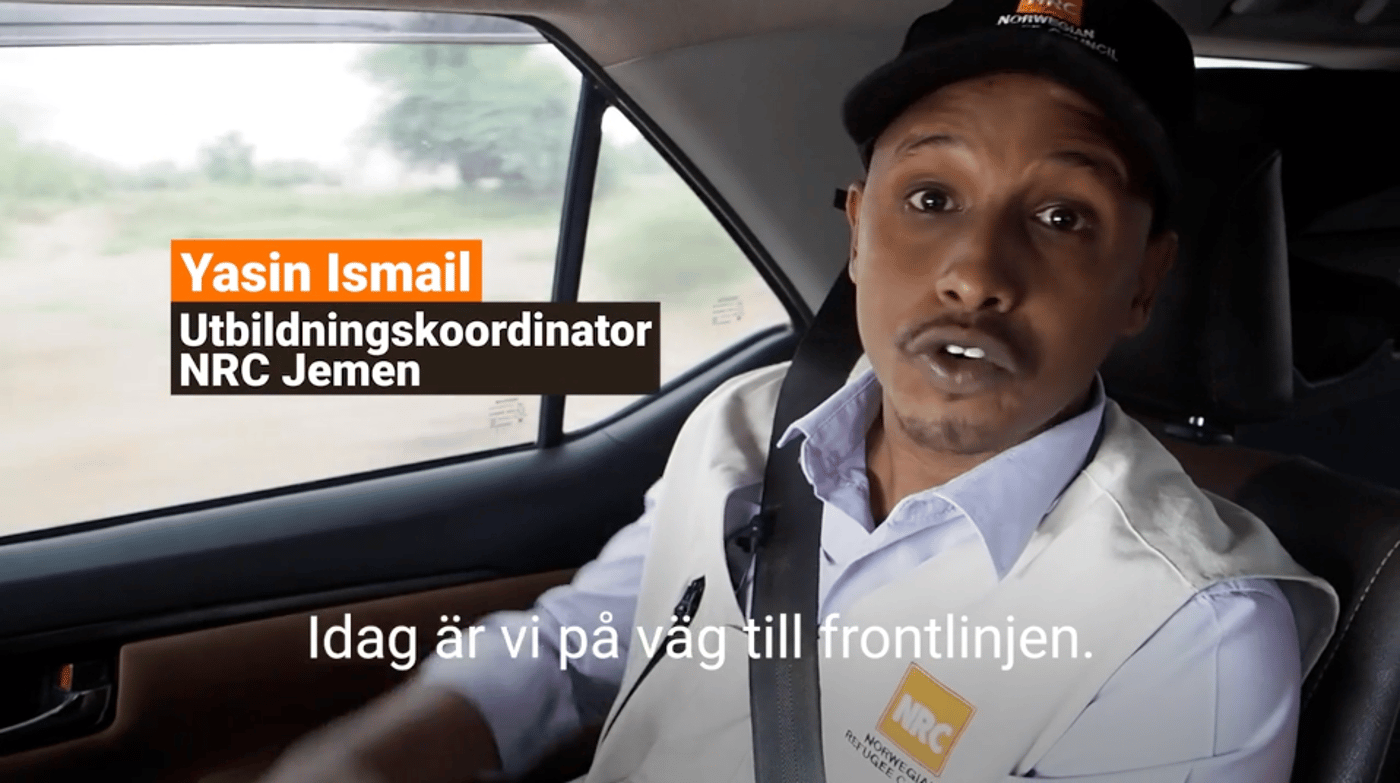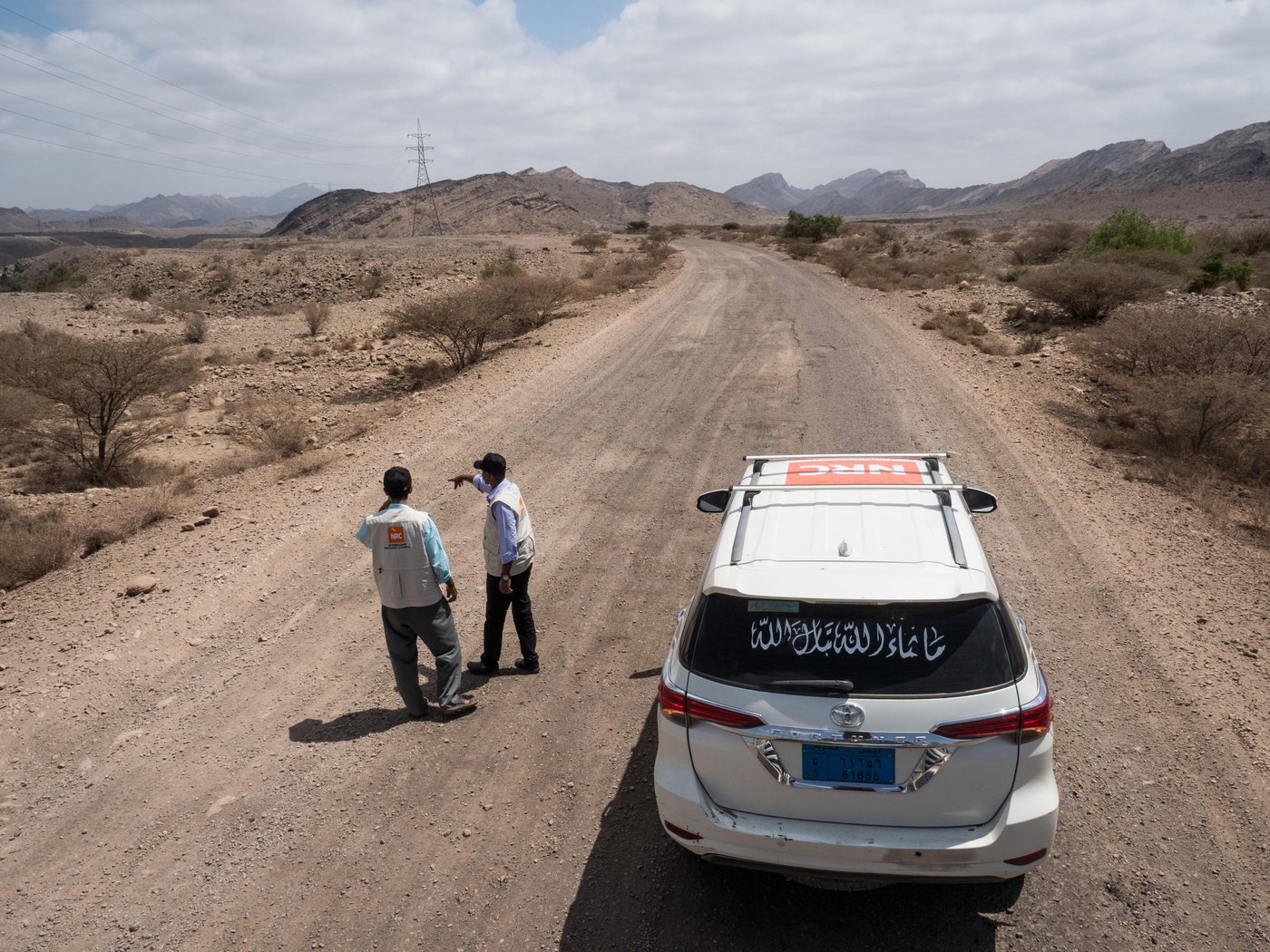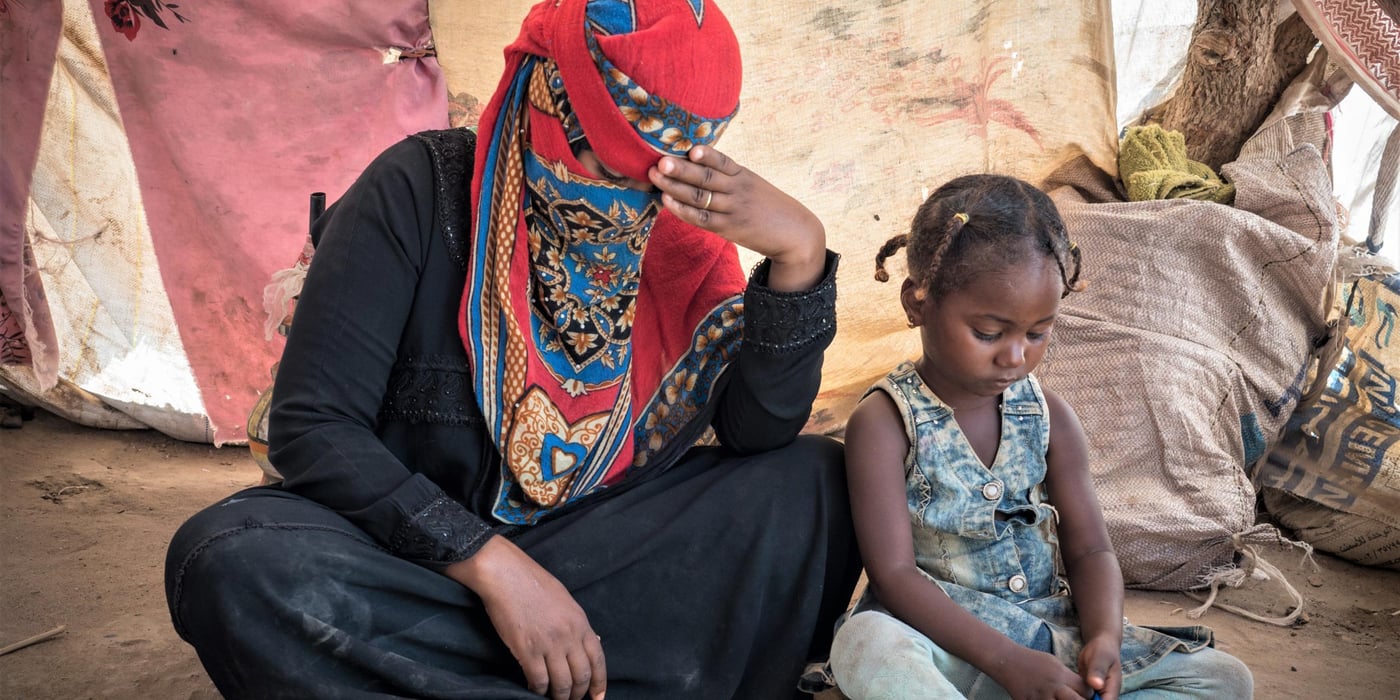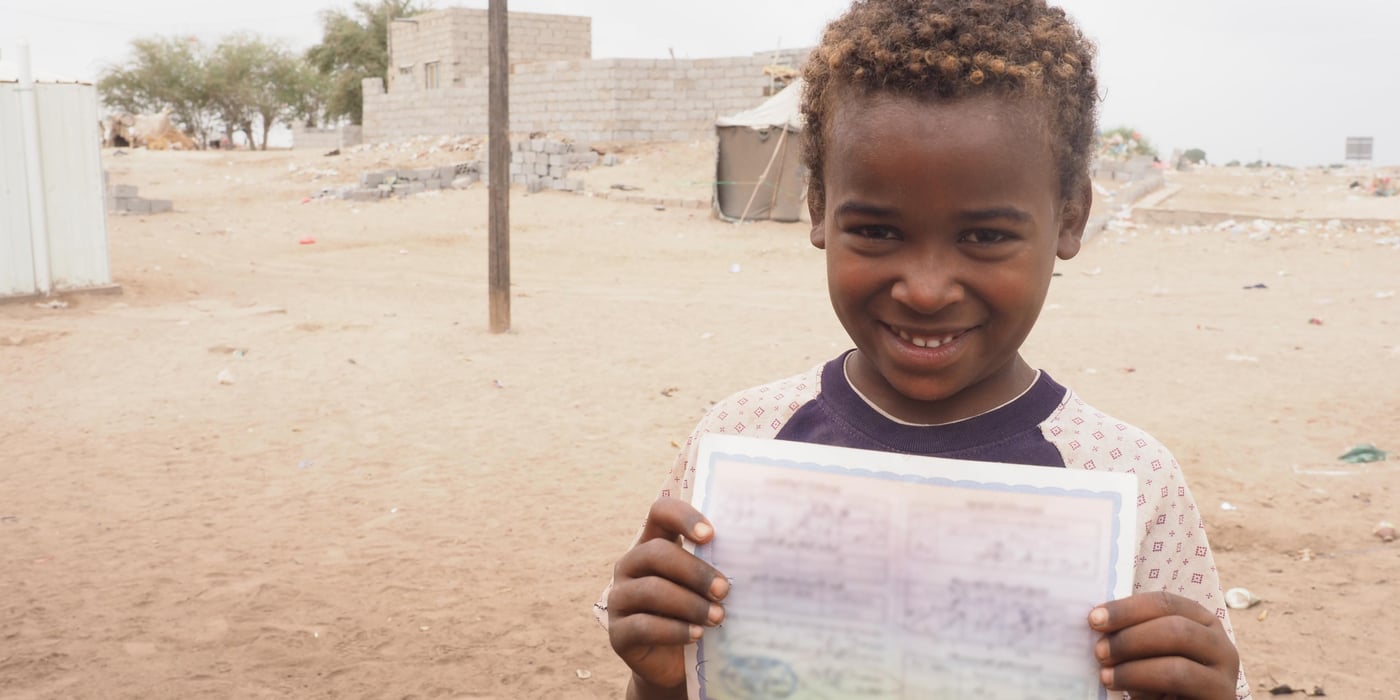![Yasin Ismail has been working for NRC for five years and believes NRC is one of the best organisation to work for. Yasin started working for NRC as an Education Assistant and is now an Education Coordinator at NRC's Aden area office.
Yasin believes education is a critical component of the work NRC does, because of its great impact on people’s lives. He recognises it as a basic human right, important to the development of children and youth to fulfill their potential, and critical to breaking the inter-generational cycle of poverty.
The impact of the conflict in Yemen has been catastrophic. Schools have been destroyed or occupied by armed groups or displaced populations, which have deprived children in some areas from accessing school for more than four years.
Children in Yemen are struggling to cope with the violence they have faced during the conflict, and continue to face imminent danger as conflict carries on and exposes them to UXOs, mines and crossfire.
Yasin believes the security situation, which results in restricted access and unpredictable funding for education, are two of the main challenges in his job. He said that affected communities need access to aid but will sometimes have challenges accessing this due to long delays at checkpoints or challenges reaching distribution sites.
Yasin wants to help and support those affected by war in Yemen and believes that we can change the world with education. “[We should] Always follow our dreams and believe in ourselves. For every ending - there is a new beginning, for every memory - there is a dream ahead.”
"I hope for peace and stability for our people and country. I hope for our children and youth to get quality education because that will help them to build their future. I believe the education is the only approach to protect future generations, because it gives people a chance for healthy development, restores a sense of normality, and provides important life skills. Further to that, an education intervention is an investment in the long-term future, and in the peace, stability and economic growth of Yemen”.
More information:
These kids, like many others, leave for school very early because it takes them an hour or as long as two hours for some to walk. Ensuring children have sufficient access to nutrition is very important for children expending huge amounts of energy on commuting, learning and playing, and ensures they are able to engage appropriately in class. Lialy was among the children without anything to eat before coming to school. NRC has started to provide high energy biscuits to children in Lialy's school, who expressed their happiness at receiving the biscuits. Several children mentioned feeling more energetic and active as a result, and said they could concentrate more in class.
Information about the school:
Al-Qadisia school is located in Al-Qubbiyta district in Lahj and was one of the first schools in which NRC has delivered programmes. NRC's team describe the AlQadisia as a normal school with an engaged community but experiencing problems including nearby landmines. As displaced families continue to move into the area, the number of students at the school continues to grow, creating overcrowding. NRC's programme is supporting rehabilitation of the school building, distribution of recreational, cleaning and scholastic materials, training of teachers and provision of high energy biscuits for students.
Education in Hard to Reach Areas:
One of NRC’s global priorities is to deliver aid and services to people in hard to reach areas. We worked with the Education Department to select this school and others identified as being among the most in need. In travelling to the school form NRC's office in Aden, staff encounter several checkpoints, threatened areas and landmines.
Our programming in Yemen's southern governorates reaches people in Lahj, Abyan and Al-Dalea, among other areas. Operating in these areas is complicated and challenging: our staff travel through checkpoints, some of which create traffic, preventing access to project sites. Several areas remain affected or threatened by conflict, explosions are often heard, landmines dot areas across Yemen and bureaucratic challenges delay or complicate processes.
Where mines explode, civilians can suffer on multiple levels as people cannot only sustain injuries, but lose mobility and access to fields and other sites used for cultivation.
Efforts should be made to call on the authorities and specialised organisations to strengthen demining operations and reduce the number of civilian casualties.
Photo: Ingrid Prestetun/NRC](/cdn-cgi/image/width=1400,format=auto,fit=crop,height=700/globalassets/sverige/yemen-31.jpg)
Yasin Ismael arbetar som utbildningskoordinator för NRC i Jemen. För att kunna ge livsnödvändig humanitär hjälp till civilbefolkningen, är han beroende av omfattande säkerhetsåtgärder.
– Det finns många landminor i området och det är livsfarligt att bege sig utanför vägarna. Varje gång vi lämnar staden och tillbaka till kontoret igen, så måste vi få bekräftelse från säkerhetspersonalen att vägen är säkrad, säger Yasin.

En ovärderlig insats
Hjälparbetare som Yasin gör en ovärderlig insats för att civila ska kunna överleva flera år av inbördeskrig och brist på mat. Genom ett ofta riskfyllt jobb, hjälper de till att lindra hungersnöd. De ser till att barn får utbildning och ger människor på flykt tak över huvudet.
Att ge hjälp till skolbarn som bor långt ut i distrikten är särskilt krävande, men det är helt avgörande att nå fram till dessa platser för att barnen ska kunna fortsätta att gå i skolan, trots kriget.
– Det är svårt att ta sig fram till skolorna nära frontlinjen. Ofta måste vi passera över 30 kontrollstationer längs vägen, förklarar Yasin.
De som arbetar med att ge humanitär hjälp till offer för inbördeskriget i Jemen, liksom lokalbefolkningen, måste skydda sig mot landminor och odetonerade sprängämnen. De riskerar också att bli offer för flygattacker eller explosioner som drabbar civila mål.
”Det finns många landminor i området och det är livsfarligt att bege sig utanför vägarna. Varje gång vi lämnar staden och tillbaka till kontoret igen, så måste vi få bekräftelse från säkerhetspersonalen att vägen är säkrad.”Yasin.Ismael, utbildningskoordinator NRC
I början av april dödades minst fem skolbarn i en bombattack när de var i sitt klassrum i huvudstaden Saana. Totalt dödades minst elva personer i attacken, som är en av många angrepp på civila i det inbördeskrig som har härjat Jemen i mer än fyra år.

Världens värsta humanitära kris
FN beskriver Jemen som den värsta humanitära krisen i världen idag. 20 miljoner människor - två tredjedelar av landets befolkning - är beroende av livsmedelshjälp. Allra värst är det för barnen. Omkring två miljoner barn är akut undernärda, enligt FN.
På grund av konflikten har priserna stigit och många har förlorat jobb och inkomst och har inte råd att köpa mat. Därför är näring en viktig del av det stöd som NRC ger till skolor i Jemen. Yasin och hans team reser till skolor och delar ut energibars till eleverna, för att de ska ha ork att följa med i undervisningen.
– Det är mycket viktigt för att barnen ska kunna fortsätta gå i skolan. Många har inte möjlighet att gå hem och äta lunch, och utan våra energibars hade de fått sluta skolan, betonar Yasin.




